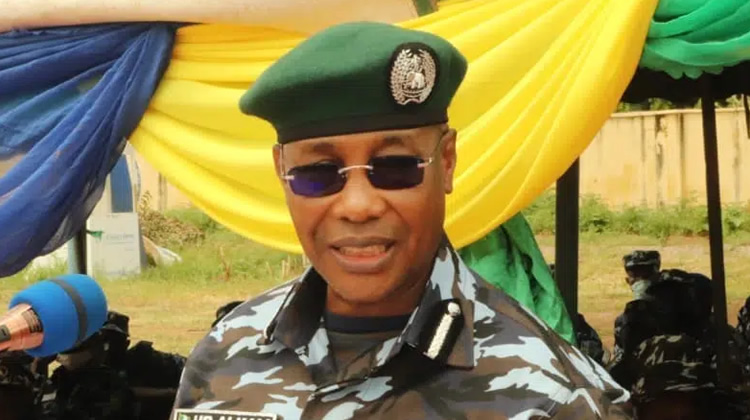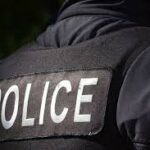
THE horrific reports of extrajudicial killings emerging from Awkuzu, Anambra State, re-echo the brutality of corrupt, killer police officers against Nigerians. Aside from making full disclosure of details of investigation outcomes, the Inspector-General of Police, Usman Baba, is duty-bound to make public examples of officers indicted in the ugly incident. Moreover, the long-delayed reforms of the police should be set in motion.
According to reports, some officers attached to the Rapid Response Squad in Zone 13 Police Headquarters, Awkuzu, torture and kill criminal suspects after emptying their bank accounts and appropriating their property, including cars. Some people were also said to have been kidnapped by the evil syndicate and their relatives forced to pay huge sums as ransom. In one case, the officers allegedly kidnapped and killed the cousin of a comedian, Emmanuel Chukwuebuka, aka ‘Brain Jotter.’
Not done in their cruelty, after killing the lady, her phone was used to scam her family of N1.2 million. These are unsettling atrocities that Nigerians and the entire world believed had ended after the #EndSARS protest movement of October 2020.
Fortunately, some of the victims who escaped alive have overcome their fear and started talking. Chisom Uche said he was kept in an underground cell alongside his brother who had just returned from abroad. He recounted, “We were seriously tortured for three days; our mobile phones were seized, and our family members could not reach us. If not for luck and the huge money they collected from us and from our accounts, we would have been killed.”
Regrettably, some Nigeria Police Force officers, despite admonitions, and occasional punishment of culprits, continue to exhibit utter disregard for the rule of law and human rights. In its report after monitoring over 400 police stations in the country, the Open Society Initiative found evidence of extrajudicial killings, rape, and extortion. These include summary executions of suspects, with torture as their principal means of conducting ‘investigations.’
Nigeria’s reputation is being further battered. New Zealand-based Human Rights Measurement Initiative, in 2022 said, “Compared with other countries in sub-Saharan Africa, Nigeria is performing worse than average.” The 2021 Human Freedom Index rated Nigeria 123 among 165 countries ranked. By implication, someone is more likely to experience police brutality in Nigeria than in Togo, Zambia, or Kenya, which rank higher. Such verdicts arise partly from the sadistic behaviour of police officers.
Despite the national and global outcry that accompanied the #EndSARS protests and its tragic ending in extrajudicial killings by soldiers and police at the Lekki Tollgate Plaza, Lagos, promises of reform by the President, Major General Muhammadu Buhari (retd.), and the Police, and the disbandment of the notorious Special Anti-Robbery Squad, police continue to violate human rights.
On December 25, 2022, a pregnant lawyer, Bolanle Raheem, was shot dead by an Assistant Superintendent of Police, Drambi Vandi. Some days earlier, Braimoh Gafar had been similarly gunned down by cops from the same Ajah Police Division, Lagos. Last week, a police sergeant, Aliyu Yusuf, shot dead an octogenarian, Maryam Abdullahi, in Yola, Adamawa State, during an attempt to arrest her relative. Amnesty International reported that Nigerian security operatives killed 115 citizens between March and June 2021. Also, the Centre for Democracy and Development said security personnel killed 13,241 people extrajudicially from 2011 to 2021.
The killings show the police learnt nothing from the 2020 protests that paralysed businesses and social activities across the country and attracted global attention. AI noted two years after that human rights violation continued unabated because the killer cops indicted by the #EndSARS panels have not been brought to justice. Police still detain suspects endlessly without trial, extort them and their relatives, and routinely apply torture.
In response to the Awkuzu horror, the IG has set up a special investigation panel and some of the accused officers are being interrogated at the Force Headquarters, Abuja. While this is welcome, civil rights organisations doubt the transparency of the police in handling the matter.
For justice to be done transparently, an independent panel of inquiry should immediately take over the matter to avoid any compromise or cover-up. The Police HQ should go ahead with its own internal investigative and disciplinary inquiry, and thereafter submit the suspects to an independent judicial panel that should be set up by the Federal Government. The National Human Rights Commission and the Police Service Commission should scrutinise the various incidents, guarantee the safety of witnesses, and ensure that the unscrupulous officers are punished. The Anambra State Governor, Chukwuma Soludo, should reach out to the families of identified victims.
The recruitment process into the Force should be reviewed to stop criminals seeking to hide under state cover to undertake their fiendish activities. Background checks on applicants should be institutionalised. A commissioner at the PSC recently confirmed that “armed robbers, kidnappers, murderers, and other dangerous criminal elements” were finding their way into the police.
There should be regular inspection of police cells across the country. Judicial officers should enforce the Administration of Criminal Justice Act provision that mandates magistrates to periodically conduct inspections of police stations or other detention centres. This will help expose and neutralise lawlessness at police formations.
The PSC and the IG need to also initiate regular psychological evaluation, training for officers on human rights, and responsible firearms use. Stiff punishment should be meted to officers who get inebriated on duty, as well as periodic and impromptu drug tests. Some officers who accidentally or wilfully killed civilians were found to be under the influence of drugs or alcohol.
Officers who kill, torture, and enrich themselves by converting the property of suspects should not only be dismissed and prosecuted; they should also be publicly humiliated. Their supervising officers must share in the punishment. The police leadership and the government have a duty to ensure that the full atrocities of the Awkuzu horror chamber are exposed, the families of the victims compensated, and the perpetrators prosecuted.




